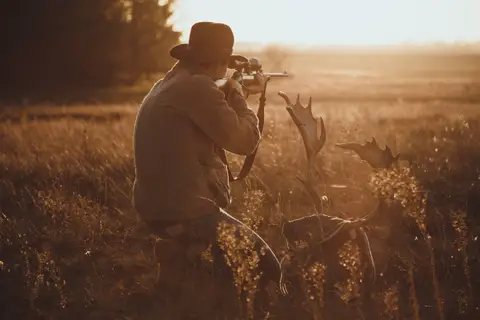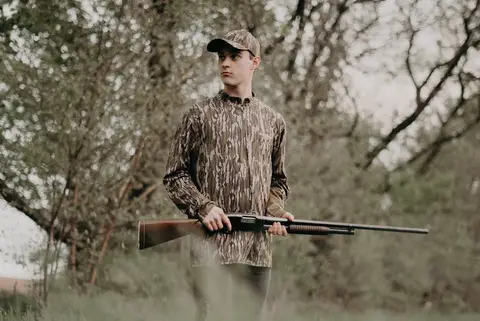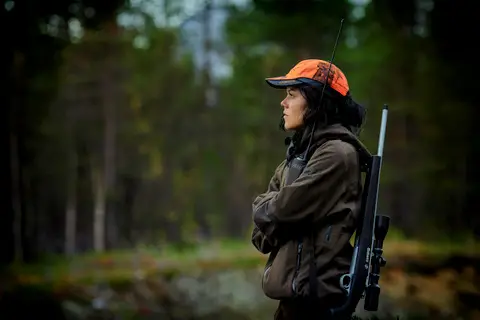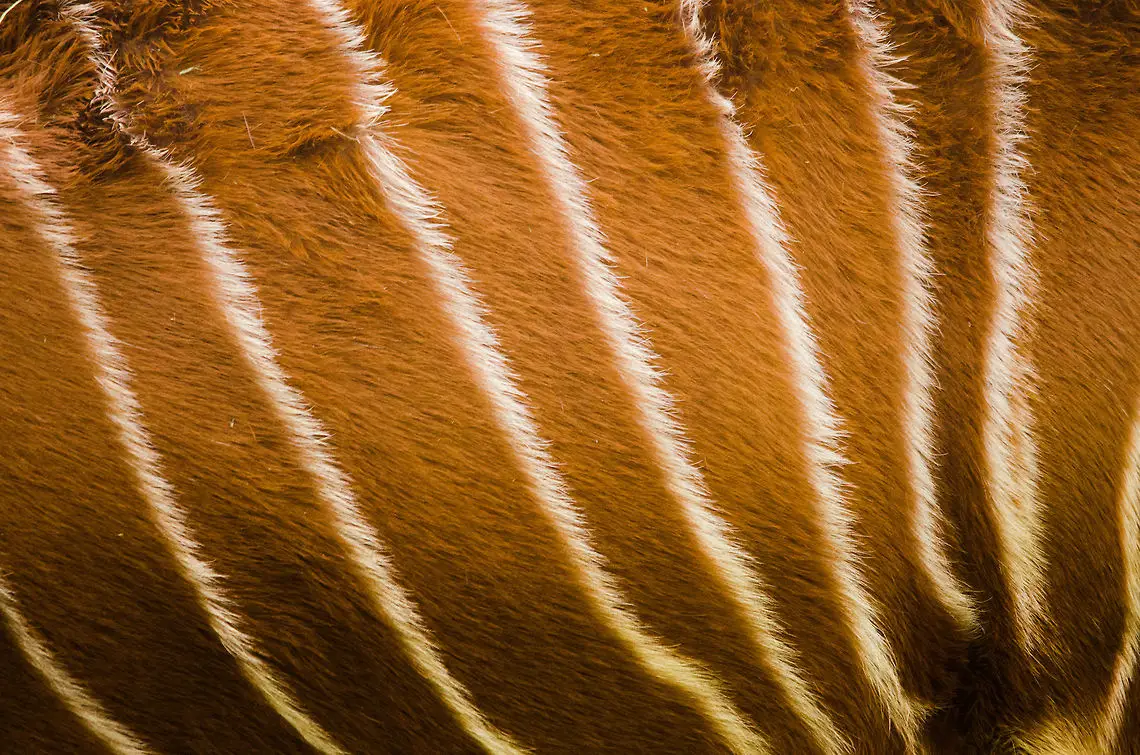Your Ultimate Hunting Gear Checklist
Hunting is not only a popular outdoor activity worldwide, it’s also an effective wildlife management tool that helps to maintain sustainable populations of various species within an ecosystem. Through fees collected from hunting licenses and permits, hunters help governments raise funds to purchase and maintain wildlife reserves and conservation areas. Without hunters’ dollars, there would be much less protect land throughout the world.
Whether you’re planning a big trip to Alaska to hunt moose and bear or simply enjoy hunting deer and ducks near your home, there are things to be aware of to ensure a safe and successful hunt. A successful hunting trip begins with packing the right gear. Not only do you need to ensure your own safety and survival in the wild since many hunting trips are organized in remote wilderness areas, but you also need to have the right hunting equipment to give yourself the best chance of securing the game of your choice.
We’ve created a comprehensive hunting gear list that covers most of the basics every hunter should include in their arsenal. While it’s important to travel light in the wild, you need to be prepared for whatever Mother Nature throws at you. Allow this list to give you the upper hand on your next hunting adventure.


Choosing Your Weapon
The most important item you’ll pack is obviously the weapon you choose to hunt with. There are often designated seasons which dictate which methods of hunting are allowed. Some hunters prefer hunting with a rifle or muzzleloader, while others enjoy the thrill of bowhunting. There are many different types of bows out there including recurve bows, takedown bows, longbows, compound bows, reflex bows, and crossbows. The two main bows used for hunting are compound bows and recurve bows.
A recurve bow look more like your traditional bow and is a more inexpensive option for hunters just starting out with common game. They are often made of wood, carbon, or fiberglass. Serious hunters often go with a compound bow which is generally much more expensive but can prove to be more accurate and energy-efficient. Think of the compound bow as a more modern version of the recurve bow. Its system of strings and pulleys provides greater velocity and distance when compared to recurve bows. Whichever bow you decide to use, seek out a model which is lightweight and provides quiet and smooth operation.
When deciding between various models of guns, it’s important to take into consideration your hunting skills. Hunting with a gun, whether it be with a muzzleloader, rifle, or a glock requires great marksmanship and stalking skills. Some types of guns will require you to get closer to your chosen game due to their accuracy range. For example, a muzzleloader’s slower velocity greatly reduces its effective hunting range.


Bowhunter left: photo by james brooks, Bowhunter Right: photo by Bureau of Land Management Oregon & Washington ,
Rangefinder
A rangefinder is a device that measures the distance between a hunter and their taret. Ethical hunters will only take shots they know they can regularly achieve and using a rangefinder allows hunters to refrain from shooting at distances they know will most likely prove unsuccessful. Shooting at a range outside of a hunter’s effective range can lead to wounding an animal instead of killing it, causing the animal to suffer and potentially not being recovered by the hunter. The best rangefinder for bowhunters is one that is compact, lightweight, and has a rainproof shell. Other qualities to look for in a rangefinder include continuous measurement capabilities, brightness calibration for changing light conditions, and high magnification.

Hunting Tools
In addition to essential wilderness survival tools you should always have in your pack, there are a number of additional tools most hunters should have at their disposal. You will often need a number of different knives, especially if your hunt is successful. While every outdoor enthusiast will usually carry a pocketknife for various tasks, a hunter will need to make sure they have a skinning knife and field dressing knife as well. Skinning knives are pretty self-explanatory while field dressing knives are used to remove the internal organs of an animal. Having quality knives is essential since field dressing must be done quickly and effectively to preserve meat from wild game.
Larger game will also require a bone saw. This can be used to cut through an animal’s rib cage or thicker joints when quartering an animal. It can also be used to remove antlers since a bone saw can easily cut through the skull cap of a deer or ram.
Another great tool is wind-checker powder which can aid you with making sure you stay downwind of your target. While you don’t want animals like deer to know you’re there, this can lead to accidentally sneaking up on predators like bears. If traveling through bear country, it’s always a good idea to pack some bear spray in case you happen to experience an unexpected close encounter.
Navigation Device
Another essential item for hunters is a GPS device. Packing a GPS ensures you will always be able to locate prime hunting spots and campsites as well as being able to find your way back home. Even when hunting in areas you are familiar with, it’s important to remember that you can get easily distracted whilst hunting and lose track of exactly where you are.
There are great GPS apps available for your smartphone which often don’t even require the use of data if you have downloaded offline maps. Be sure to familiarize yourself with your GPS device before you head out in the field and pack extra batteries. You should also pack a compass and know how to use one in case your GPS or phone batteries die. Don’t forget to also check current trail conditions online before you head out in order to make sure the trails are accessible and safe.
Survival Kit
Anyone planning outdoor activities, especially in remote wilderness areas should learn first aid and pack a first aid kit. Hunters need to be able deal with a range of different injuries. Many hunters use elevated tree stands or hides, and falling from such a height can lead to broken bones. There are then the obvious risks associated with carrying a bow or rifle and being in the vicinity of other hunters. Other potential health issues include bug or animal bites, contact with poisonous plants, hypothermia, heat exhaustion, dehydration, and injuries from general hiking through dense brush. Your first aid kit should contain personal medications, range of different bandages, sterile gauze pads, antiseptic wipes, band aids, latex gloves, insect/snake bite kit, first aid manual, and an epipen if you’re prone to anaphylaxis.
Packing a water filtration system is also recommended for extended hunting journeys where you may be forced to source water from natural sources like rivers or lakes. Purifying water through boiling or a portable filtering device will prevent you from picking up a nasty waterborne illness.
Clothing
Weather is often unpredictable, so it’s important to pack clothing for any condition that may be a possibility. Waterproof clothing is highly recommended, as is camouflage gear. Of course if you plan on hunting in an area where there are likely to many other hunters, wearing high visibility clothing is essential.
Most hikers opt for a three-layer dressing system that consists of a base layer, mid layer, and shell or outer layer. Dressing in layers allows you to easily add or remove clothing to keep your body temperature in control depending on your level of exertion and the outside temperature. The types of layers you decide on will depend upon the location where you plan on hunting.
You will also want to make sure your clothing doesn’t smell like laundry detergent. You want to conceal both your own scent and artificial scents which can alert animals of your position. There are special scent killers available in sprays or ones that are used as a detergent you can wash your hunting clothes in beforehand. Of course some deer hunters take things to the next level and choose to mask their scent with deer urine. You may simply wish to shower with scent-free body wash and maybe use activated carbon headgear that can reduce scent from your sweating and breath.
You will also want to pack rubber gloves for field dressing to avoid picking up any potential harmful bacteria or parasites the animals may have.
Game Calls and Decoys
Many hunters also have great luck using decoys, especially when it comes to hunting ducks and geese. Many hunters also use animal calls to lure in game. They make game calls for deer, rabbit, predators, waterfowl, and more. Most calls are of the manual variety which you must acquire a bit of skill to use. The use of electronic calls are often considered illegal for hunters to use on most species.
Hunting Licenses
Hunters must be aware of all licenses and permits that are required for hunting various game. You must carry your licenses and hunting tags with you, keeping them secured somewhere that is waterproof. Zip ties may come in handy when it comes to attaching your tags to your animals.























